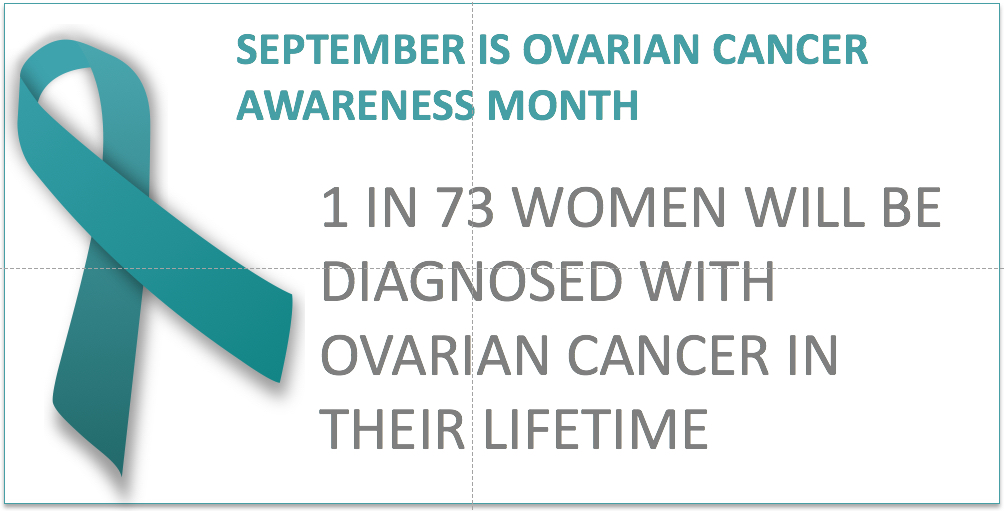 Auremar/PhotoSpin
Auremar/PhotoSpin
If you had ovarian cancer would you be able to recognize the symptoms? Sadly, the answer for many women is, probably not.
Ovarian cancer is sometimes called a silent disease because its symptoms are very similar to the symptoms caused by other conditions. This means ovarian cancer can be difficult to recognize or diagnose in the early stages.
Ovarian cancer is the fifth leading cause of cancer death for women in the United States.
The American Cancer Society estimates that nearly 22,000 new cases of ovarian cancer will be diagnosed in 2014 and over 14,000 women will die from ovarian cancer this year.
Knowing the potential symptoms of this deadly disease gives women the opportunity to get checked as soon as possible if they are concerned that they might have ovarian cancer.
Be alert for these symptoms of ovarian cancer:
- Bloating, a swollen belly, or pressure in the abdomen
- Pain in the pelvis or abdomen
- Persistent indigestion, nausea or gas
- Feeling full quickly or difficulty eating
- Frequent or urgent need to urinate
- Changes in bowel habits such as constipation
Other possible symptoms of ovarian cancer include:
- Loss of appetite
- Abnormal periods or vaginal bleeding between periods
- Back pain for no reason that gets worse over time
- Gaining or losing weight for no reason
- Gaining inches around your waist, or clothes that suddenly fit tighter around the waist
- Persistent low energy
- Pain during sex
These symptoms may be related to ovarian cancer or may have another cause. If the symptoms last more than two to three weeks, if they occur almost daily or if the symptoms occur 12 or more times in a month, talk to your health care provider.
In general, the symptoms of ovarian cancer follow this pattern:
- They come on suddenly
- They feel different from other times you had similar symptoms
- They happen almost every day
- They don’t go away
Only you can tell if what you are feeling is out of the ordinary or not normal for your body. Be aware of changes in how you feel and be persistent in telling your doctor if something does not feel right.
Ovarian cancer occurs more often in older women. About half of the women diagnosed with ovarian cancer are 63 or older. Women who have had a hysterectomy may still be at risk for the disease.
Even women who have had their ovaries removed in conjunction with a hysterectomy can be at risk of a related cancer due to cells that migrated from the ovaries to the wall abdominal cavity during their periods.
These cells can remain in the abdomen and become cancerous even after the ovaries are removed.
Currently there is no routine screening test for ovarian cancer. This means ovarian cancer is often diagnosed at a more advanced stage than some other types of cancer.
Regular women’s health exams, including Pap tests and pelvic exams, can help your doctor monitor your overall health, but are usually not conclusive in detecting ovarian cancer.
If you are concerned about ovarian cancer, your possible symptoms, or if you have a family history of ovarian cancer, talk to your health care provider.
When you go to your appointment with your doctor, be sure to bring along your family’s medical history and make sure you include information about any cancer diagnoses in your family.
Also bring a list of your current medications including vitamins. And before the appointment, make a list of all your symptoms and pains, especially abdominal concerns.
Talking about a potentially serious medical condition can be difficult. Consider asking a friend or family member to go the appointment with you and be sure to take notes on what the doctor tells you.
Sources:
National Ovarian Cancer Coalition. Symptoms of Ovarian Cancer. Web. October 18, 2014.
http://www.ovarian.org/symptoms.php
Mayo Clinic. Ovarian cancer. Web. October 18, 2014.
http://www.mayoclinic.org/diseases-conditions/ovarian-cancer/expert-answers/ovarian-cancer/faq-20057780
WebMD. Ovarian Cancer Health Center: Symptoms. Web. October 18, 2014.
http://www.webmd.com/ovarian-cancer/guide/ovarian-cancer-symptoms
American Cancer Society. Ovarian Cancer. Web. October 18, 2014.
http://www.cancer.org/cancer/ovariancancer/detailedguide/index
Medline Plus. Ovarian cancer. Web. October 18, 2014.
http://www.nlm.nih.gov/medlineplus/ency/article/000889.htm
Reviewed October 21, 2014
by Michele Blacksberg RN
Edited by Jody Smith




Add a CommentComments
There are no comments yet. Be the first one and get the conversation started!